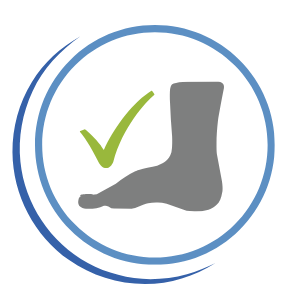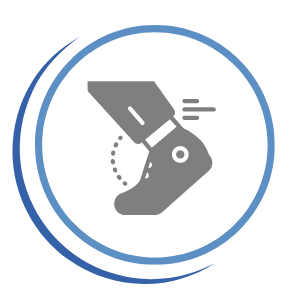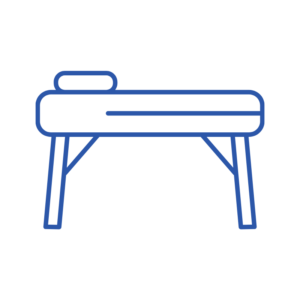Hallux Rigidus, commonly called ‘Stiff Big Toe’, reduces your range of motion and can ultimately affect how you walk.
Hallux Rigidus Treatment
Commonly referred to as ‘Stiff Big Toe’, Hallux Rigidus is a degenerative condition that leads to a reduced range of motion in the first metatarsophalangeal joint (MTP) or your big toe.
This can impair your gait, especially the propulsion phase or as you toe off. Over time you gradually lose movement in your big toe.
At the base of the first MTP is usually where the degenerative arthritis is found. The ends of the bones are covered with articular cartilage, a shiny covering to protect the ends of the bones within the joint. As this covering wears, degeneration occurs until bone is against bone. Bone spurs develop as part of this degenerative process and movement decreases.
Normal range of motion is approximately 70 degrees of extension. We need 45-65 degrees to be able to walk without compromise or compensation.
Weight bearing X-rays are often required to examine the joint.
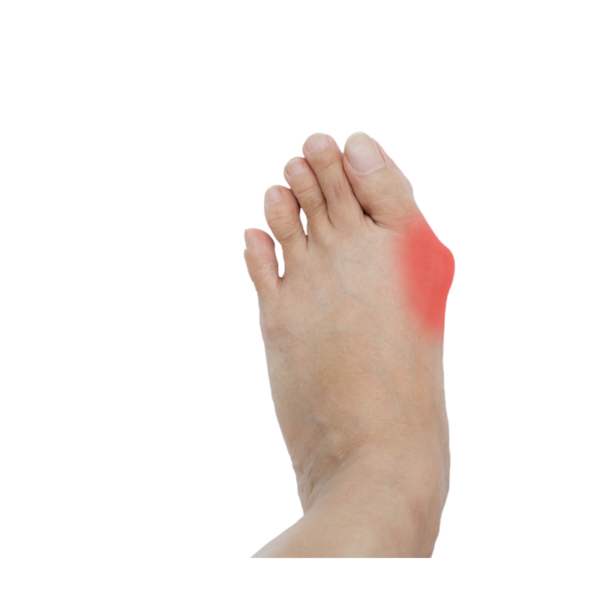
Hattrup and Johnson classification:
Grade 0
- Dorsiflexion 40-60°
- Normal radiography
- No pain
Grade 1
- Dorsiflexion 30-40°
- Dorsal osteophytes
- Minimal/ no other joint changes
Grade 2
- Dorsiflexion 10-30°
- Mild to moderate joint narrowing or sclerosis
- Osteophytes
Grade 3
- Dorsiflexion less than 10°
- Severe radiographic changes
- Constant moderate to severe pain at extremities
Grade 4
- Stiff joint
- Severe changes with loose bodies and osteochondritis dissecans
What are the risk factors?
There is no single cause of Hallux Rigidus
- Overuse of the joint – repetitive bending and loading of the toe
- Post stubbing or spraining of the joint – bending it too far or too forcefully
- Heredity
- Having Knee Osteoarthritis
- Structural abnormalities such as Hallux Valgus, where the big toe moves toward the other toes
- Other rheumatological conditions such as Gout or Rheumatoid Arthritis
- Faulty Biomechanics – fallen arches or excessive pronation
What are the symptoms?
- Pain, stiffness around the base of the big toe
- Swelling around the joint
- Pain aggravated by walking, running or walking up hills
- You may be able to palpate a “new prominence” around the joint compared to the other side
- Pain aggravated by cold, damp weather
- Difficulty with squatting
As the disorder progresses:
- Pain even a rest
- Difficulty wearing shoes due to bone spur development
- Changes to how you walk may affect you knee, hip or lower back
- Limping due to pain
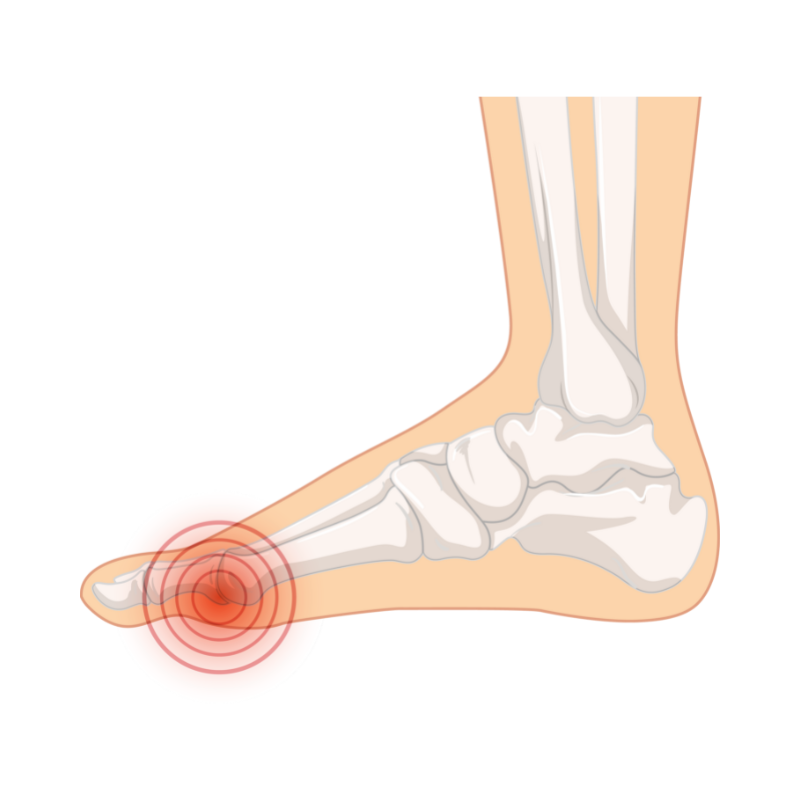
Treatment for Hallux Rigidus
In many cases cases early treatment is crucial to prevent or postpone surgery.
- Joint mobilisation
- Soft tissue release
- TECAR therapy
- Custom Foot Orthotics can help improve foot function
- Shockwave Therapy
- Shoe modifications such as a larger toe box or a rocker bottom may be recommended
- Tailored exercise program
If conservative management fails then surgery is the only option to eliminate or reduce pain.
How to book an appointment?
If you think that you may be suffering from Hallux Rigidus, or you’re looking for a ‘physiotherapist near me’, our physios at Vitalis Physiotherapy can assess and diagnose the condition. They may also refer you to get scans in some severe cases to better understand your needs. Your treatment plan will be tailored to your needs to aid in your pain relief and recovery.
All you need to do is just give us a call on 0410 559 856 and request an initial appointment. Please let our friendly reception staff know the background and severity of your condition.
You can visit our FAQs for more information about appointments at Vitalis Physiotherapy.
Need Help?
Are you suffering from painful Hallux Rigidus, or looking for a physiotherapist around me? Contact Vitalis Physiotherapy now to book in your treatment.
Call our friendly team on 0410 559 856. We’d love to help.


